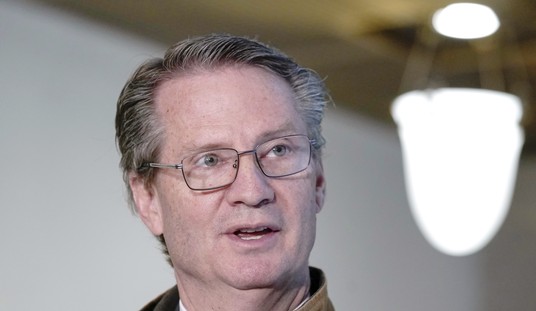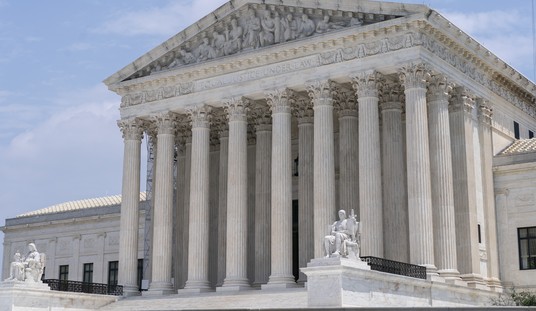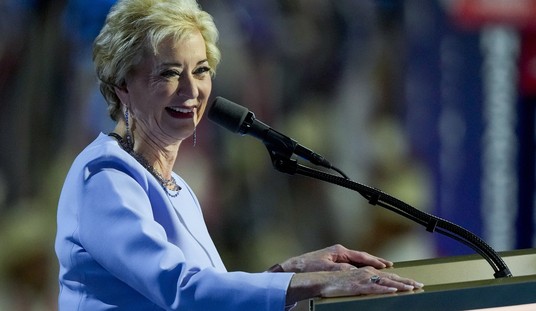We need to hold our political candidates’ feet to the fire. It is primary season, not the general elections, and if there is any time that we should be hard on Republicans for their records and positions, it’s right now. There’s virtually no such thing as a “gotcha” question right now, because as a candidate for the most powerful job in the world, you’d better be ready to answer anything and everything and smile about it. It’s part of the process.
One of the reasons that so many arguments break out on twitter and elsewhere among candidate supporters is because, for some, raising concerns is tantamount to public crucifixion. This past weekend, after Presidential candidate Rick Perry announced his intentions, some Palin supporters were tweeting that he was part of the problem that Sarah Palin was the only one qualified to fix. I let it be known that while I was a fan of Perry, it didn’t interfere with my ability to like and support Governor Palin. The backlash was quick as people let me know in short order that Perry was not a “real” conservative, and my support for him indicated that I wasn’t either.
Then came last night’s column from Michelle Malkin which articulately made (albeit incorrectly in my judgment) the case that the people in my Twitter feed did not: namely that there are reasons to believe that Governor Perry’s credentials are decidedly not conservative. While she refrains from outright declaring opposition to a Perry presidency, her concerns were made clear, and they are concerns which were brought up at RedState as well in a much cited article posted by BA Cyclone. In it, he dives into the issue of Perry’s mandated vaccination program as well as the appearance of impropriety if not outright crony capitalism that his administration has been accused of.
Malkin’s concerns are fair, and she made them pointedly. However, I believe her conclusions are rushed. For some others I’ve seen and spoken to however, it goes well beyond measured critiques and concerns and is passing in to outright accusation based on what they claim is strong evidence of Perry’s statist nature.
Prima facie, the issues surrounding Governor Perry seem to be pretty simple: Governor Perry is being accused of allowing his connections within the halls of Merck to influence his decision to mandate a vaccination for an STD, which would benefit a company that had made donations to his campaign in the amount of $6,000. So at best, he’s being accused of being a big government nanny-state statist, and at worst, he’s an ethically compromised, lobbyist loving statist.
In the first place, the case against the vaccinations themselves is solid. He absolutely shouldn’t have issued the executive order. RedState’s Streiff laid these reasons out yesterday:
However, there were a lot of very good scientific reasons as to why Gardasil should not have been made mandatory. For instance,
1. The recommendation did not include males, though males can carry and transmit HPV. This oversight made the creation of “herd immunity” impossible. This, definitionally, means the vaccine could have only a limited effect in combatting HPV.
2. Not all strains of HPV linked to cancer were affected by the vaccine. While doing something is better than doing nothing… generally… no one knows what the impact will be of creating a better evolutionary environment for the others strains by eliminating competing versions of the virus.
3.Requiring people to receive a vaccine against diseases which they may very well never encounter is a very queasy ethical area. Unlike diseases like measles, whooping cough, etc., HPV is not spread through casual contact.
4. Clinical trials were conducted on women aged 16-26 leaving everyone to presume that Gardasil was safe and efficacious in 10 year-olds even though there was zero data pertaining to that age group.
Perry himself has since said that it was a bad decision which he regrets:
“I signed an executive order that allowed for an opt-out, but the fact of the matter is I didn’t do my research well enough to understand that we needed to have a substantial conversation with our citizenry,” he said. “I hate cancer. Let me tell you, as a son who has a mother and father who are both cancer survivors.”
So on all sides at this point, there seems to be agreement that the vaccinations were a bad idea, a misguided policy, and shouldn’t have happened.
But if you read any of the critiques of Perry that reference this incident, he is getting no quarter because the incident itself is not the problem. It’s the mindset. If you read Malkin or BA Cyclone’s articles, you’ll quickly see that the issue at hand is, “how could he have come to this conclusion?”
There’s simply no way to answer the question without making assumptions about what is going on in the mind of another person or, since Perry has revealed what he is thinking, assuming that any regret or admission of fault is a lie or at best, spin.
The first evidence that it is spin is referred to as the “opt-out myth,” and BA Cyclone brings this out as the first example of Perry’s half-truth that this was not mandatory.
Further, this opt-out clause is not quite as simple as you might imagine. From Politifact:
The order included an opt-out “in order to protect the right of parents to be the final authority on their children’s health care.” Perry ordered the Department of State Health Services to allow parents dissenting for philosophical or religious reasons to request a conscientious objection affidavit form. That form, which has been available since 2003, enables parents to enroll their children in public school even if they lack state-required immunizations. It’s automatically granted as long as parents provide all required information.According to the Department of State Health Service’s 2008-09 immunization report, which uses data from kindergarten and seventh-grade students at 1,300 independent school districts and 800 private schools, 0.28 percent of the students filed conscientious objection forms.
Parents must renew exemption affidavits every two years to maintain their validity, according to Allison Lowery, assistant press officer at the Texas Department of State Health Services.
We thought the opt-out form for public-school students proved Perry correct until we learned that not all private schools accept the affidavit. That means some private schools may not allow their students to exempt themselves from any state-required vaccinations.Some 15 percent of more than 1 million Texas girls in fifth through 12th grade in 2008 were enrolled in private schools, according to the U.S. Census Bureau.
According to a 2006 Texas Attorney General’s opinion: “A private school that does not accept state tax funds is not required to accept for enrollment a child who has received an exemption from the immunizations required by the Texas Health and Safety Code.”
In its policy for Catholic schools, the Catholic Diocese of Austin states: “Immunizations are not in conflict with the Catholic faith. Conscientious objections or waivers, which may be permissible for enrollment in public schools, do not qualify as an exception to this policy.” Catholic schools in the diocese do accept medical exemptions, meaning if the immunization could somehow harm the child, it’s not required to enroll. [emphasis added]
To repeat, by the stroke of a pen Governor Perry changed the status quo, thatparents must appeal to the government to not have their child immunized against a sexually transmitted disease. In practice, an opt-out provision is much more difficult than it sounds, particularly when scores of service providers (not just in Texas) require compliance with government mandates.
This is not liberty, this is tyranny.
Essentially, the quote is claiming that because there were some private schools that required the additional vaccination even though the state did not require them to, the opt-out isn’t real. Politifact is continuing with their well known logical fallacies and lack of common sense.
The fact that a private institution creates private rules related to a program which you can opt-out of in public schools is a matter to take up with the private schools, not the governor. There are a great many things that non-tax supported private schools have in their rule books and admission policies, and I don’t hear anyone blaming the government for those. This is not a valid critique since it is not a requirement that Governor Perry had any ability to change. Even if he had repealed the entire executive order, these same private schools could have chosen to keep this vaccination requirement in place, and there wouldn’t have been a thing Perry could have done about it. In fact, if he had, these same critics would be lambasting him for interfering in the admission practices of a private institution.
The more effective case against the reality of an opt-out was that this is placed on the parents to request as opposed to defaulting to the parents. Of course, this does prove that it’s not spin on Perry’s part given that it’s referred to as “opt out,” which inherently means that you are opted in by default. Is this a wrong way for government to function? Perhaps. But it is tyrannical only if you assume that he didn’t believe that it was comparable to other, well established and socially acceptable mandatory vaccinations and, further, that he’s lying when he acknowledges his decision to have been wrong.
So the question becomes, “Isn’t there reason to doubt Perry’s word on this, given his connection to Merck?” Essentially, “Is Perry a crony capitalist?”
In the first place, crony capitalism is defined differently by different people. However, the most common understanding of it is as follows: Candidate A accepts money from Company A and then once Candidate A is elected, Lobbyist A asks Candidate A (Now known as Official A) to ‘hook ’em up’ and Official A uses his power to grant Company A some sort of contract or other financial benefit.
The evidence against Perry in regards to crony capitalism:
- Pharmaceutical company Merck contributed $6,000.00 to the Perry reelection campaign (money)
- Merck created the vaccination in question that Perry was to push (hook ’em up)
- One of Merck’s chief lobbyists was Gov. Perry’s former chief of staff (lobbyist A)
For many, this is an open and shut case. As BA Cyclone points out, the mere appearance of impropriety should be enough for someone to reexamine his closeness to a situation and consider recusing himself from the process. He may be right. If you believe that Governor Perry’s regret over the incident is genuine, he apparently believes he handled it wrong as well.
But once again, this isn’t about the facts for many people. This is about assumptions of intent. And the assumption of intent here is that Rick Perry is just an establishment crony capitalist. But as was the case with the opt-out “spin” I just don’t find the evidence compelling.
In the first place, the $6,000 donation confuses me as evidence of anything. I’ve always found it odd that people can’t put 2 and 2 together on this one. Yes, Merck probably thought that it would be a benefit to them if Perry were elected as opposed to his opponent. Yes, Merck probably believed that their lobbying efforts would be more successful with a business-friendly governor than the opposite. Why are people so stunned that companies vet candidates and then contribute to the ones that are going to be most friendly to their objectives? Don’t we all do that? If Wal-Mart had contributed money to Perry’s campaign and then the next year Perry lowered corporate taxes in his state which inspired Wal-Mart to move there, we’d be hearing praise for his business-friendly policies, not assuming that they were in bed together.
Regarding Merck’s standing as the company chosen to provide these vaccinations, it is not the case the Merck simply happens to make the vaccine. They are the only pharmaceutical company that makes the vaccine. No matter what else you think of Perry, the fact that he got the vaccine from the only place that makes them is simply a matter of working within the confines of reality.
This brings us to the lobbyist. I don’t know how many of the people reading this work or survive in business by making connections, but I can assure you of this: When you need to make the case to someone that his business or state or whatever he is in charge of should do, knowing him helps. The lobbyist knew Perry. He set up the meetings with Perry I’m sure. That’s how knowing people works. It doesn’t speak one bit to the legitimacy of Perry’s belief in the vaccine anymore than using Haliburton spoke to Cheney’s. If Carly Fiorina had won in California, I’m starting to think people would accuse her of cronyism because her office was packed with HP printers. Is it possible that this lobbyist knew the entire time that he might be able to leverage his connection later and thus offered a helping hand with Perry’s election because he believed that policies coming from his office would benefit him? Quite possible. Is it wrong to work towards getting a person elected that you think will all together be a benefit to you? If there is, then everyone has been doing it wrong all along.
I look at this one situation and say to myself, this isn’t enough. In order to assume that this one incident is an example of a statist nature, I have to do too many things that I find to be unfair. I have to assume that every person involved, including Governor Perry, never believed for a moment that the vaccinations were the right thing to do. I have to assume that Governor Perry hired lobbyists with the intention of selling favors to them later. I have to completely ignore the precedent set by other mandatory vaccinations and act as though this particular vaccination is completely disimilar circumstances hinting of tyranny. I have to assume that he went out of his way to make it difficult or impossible for people to opt-out of the program that he initiated. And I’ve got to assume that after all was said and done, his apology is nothing more than the continuation of a series of lies and half-truths done in the name of crony capitalism, greed, and political expediency.
And the only evidence anyone seems to be able to provide me to prove that that is what happened? They think it. Sorry, not good enough.
I very much look forward to the vetting process of our candidates. If Sarah Palin jumps in, as much of a fan of hers as I am, I plan on being just as thorough with her. Right now, she’s not in elected office so I see no reason to anal-probe every comment and policy decision she’s ever made. Right now, she’s “one of us.” But as soon as she starts running to be “one of them,” I’m back to “feet meet fire.”
The same went and still goes for Perry. And each time something comes up, I’m going to look into it, I’m going to vet him and, like Malkin and BA Cyclone and others have done, I’m going to hold him to account for his policies and his positions. And while they have done a great job of making their cases individually, I think their conclusions depend way too much on simply filling in the blanks of what goes on inside Perry’s head.
Many in the twitterverse have gone much further than that, to the point of flat out accusing his supporters of not being conservative at all and Perry as no better than Obama.
If we are going to survive this vetting process and still be friends when it’s over, if we are going to figure out who is best for us without fracturing the party irreparably from within as the Democrats did with Hillary and Obama, we have to extend a modicum of trust and be willing to acknowledge that no candidate is without fault.
Trust but verify.













Join the conversation as a VIP Member